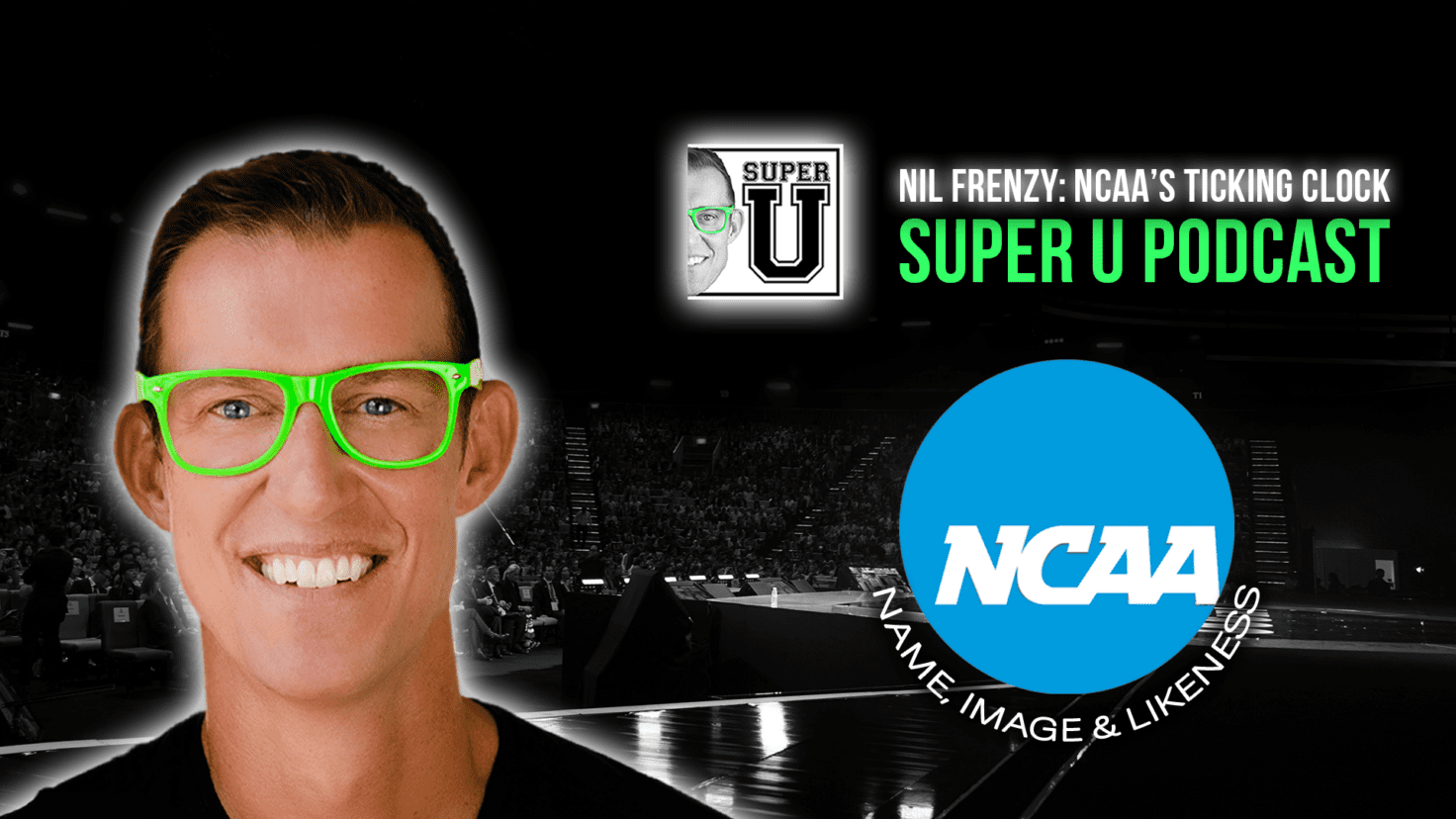Super U Podcast | 7 Super Tips with Bill Belichick
Bill Belichick, New England Patriots head coach gives us insight on why it’s important to work as a team, how to pursue new ideas, and how he got to where he is now.
5x #1 Bestselling Author and Motivational Speaker Erik Qualman has performed in over 55 countries and reached over 50 million people this past decade. He was voted the 2nd Most Likable Author in the World behind Harry Potter’s J.K. Rowling.
Need a sneak peek? Below are the main takeaways from the episode.
Super U Podcast | 7 Super Tips with Bill Belichick:
[4:44] Tip #1
“Yeah, I’d say day after day, dependability. Like it’s trust. I mean, what you want is you want to trust each one of your teammates. The guy sitting next to you, the guy sitting behind you, the guy sitting across from you. You want to be able to trust that guy, okay to do his job and you want him to be able to trust you to do yours. So how do you get that? You talk about it? No, you earn it. You earn your teammates’ trust by your performance and your consistency every day. It’s not being selfish. It’s not like what can they do for you? It’s what you can do for them. Alright, you can’t talk about it like, Oh, yeah, I got your back, I got your back arch back. And I don’t do. All right, you got to earn that by doing something for your teammate, every single day. And the first thing you have to do there is show your team that you’re committed to the team. That’s what a good teammate does. And you earn that trust through dependable performance. You earn it, nobody can give it to you. You can’t buy it, you can’t, you know, talk about it. You got to go out there and earn it. It’s a process. And it’s day after day after day after day.”
[5:58] Tip #2
“Yeah, I’ve learned a lot from my dad, you know, he was the youngest of five, you know, grew up kind of, in a poor environment. his big break really was football, work his way through college, lived in the gym, and a closet, summer jobs, and all that I made a career out of football and ultimately ended up here at the Naval Academy where I think he was destined to be because he loved this country, and the quality of people that come here because of their toughness, their work ethic and their devotion to the country and their duty. And so that’s really what he’s about or what he was about. And so many of those lessons I learned, either from him or from my association with the Academy, or from my association with the people at the Naval Academy, which represented those same values.”
[6:57] Tip #3
“Where I probably learned the most is my first year in 1975, because I took a job was given the job of the Colts, and I didn’t have any experience. And they were very understaffed. I wasn’t getting paid anything. But I had a lot of responsibility for that position. And so I was able to learn a lot. It was like having two or three graduate courses in one year after that year, when I went to Detroit, we were one in four, we were playing the Patriots were foreign one, they had a great team. And I went back to an experience that I had in Baltimore, I kind of talked to our offensive coordinator at that time and said, Look, I know we haven’t ever used this formation. But you know, I studied this formation while I was in Baltimore last year. Like, I think this is really gonna give the Patriots a problem. Can we take a look at this? So we went through it, we looked at it, we use it and you know, we won the game by three touchdowns. It was a huge upset. That was kind of one of those where I’m like, okay, I can coach in this league.”
[8:17] Tip #4
“Don’t be afraid to use a good idea just because it’s unconventional just because somebody else hasn’t done it. If you believe in it’s a good idea, then, you know, don’t be afraid to use it. So fast forward. I take the job with the Patriots in 2000. The first meeting we have in the spring is back in the old Foxboro stadium. So it’s kind of a small room, we’re squeezing the whole team in there. And here comes in the guy’s first-round draft pick from a prior year, walks into the front of the meeting, not into the back, walks into the front, and kind of sits down. And I’m already I’ve already started the meeting three, four minutes into it. And I just look at him like what are you doing? said, you know, sorry, coach, like sorry, let’s get out of here. We’re not going to start this program Off with you walking in whenever you feel like walking in, I’ll care if that guy’s number one draft choice or not. Number one draft choice. You know, we’re just not going to run a team like this.”
[9:23] Tip #5
“Yeah, absolutely. And my dad had great relationships with other members of the staff. I learned coaching at an early age how coaches think how coaches, you know, what bothers them, what doesn’t bother him kind of, then there’s a lot of coaching styles. But again, that was part of it, too, is you can learn like, Look, all 10 of these guys are good coaches. They each have different personalities each has different styles. What does that mean? You figure out what works for you. I took a lot from everybody and somehow figured it out. And that’s kind of, I think, to me in business, or in life, there’s a like, just figure it out.”
[10:15] Tip #6
“Do your job, be attentive, pay attention to details, and put the team first in football. To be successful as an individual player, you need your teammates, and the better you connect with them, the better you interact as a team, the more successful you’ll be individually. And I’d say we try to do things to help the team-building process like what? Well, you know, on the field, if one person does something particularly good, then everybody receives a benefit. So now you’re counting on that other person, even though he might not be on your side of the ball, you might not even really like the guy. But if he does the right thing, we all get something while you’re pulling for him. And then off the field. Again, we do team building things where we get to know each other, we throw away the cell phones and just do things that we’re together as a team and we’re experiencing together, whether it be you know, going to a movie or we play games or you know, do trivia or do something like that, that just kind of brings everybody together, have fun. But take all the outside distractions out.”
[11:36] Tip #7
“After every game, I look at the mistakes that were made in that game by me by the coaching staff. And you know, we need to address those and correct those good players can’t overcome bad coaching, it’s impossible on a personal level, let’s say, you know, the one thing that I’ve definitely learned is you’ve got to count on your most dependable people, I’ll put it this way, if we’re going to lose, I’m going to lose with that guy, or that person’s mistake or coming up short in that area. And if it doesn’t work, it doesn’t work, but I’m going down with that person might not be your most talented person that you count on as your most dependable people. So there have been times when I’ve put, I would say too much responsibility on people that weren’t dependable. And they didn’t come through. And so whose fault is that mine, when you’re the head coach, you can only do so many details. And I would say at times I was too detail-oriented in some of the tasks that I was on and didn’t have enough breath or given off leadership and other areas. I mean, look, every team has young players and they have wives and girlfriends, and they have babies and they have parents that are sick, all that somewhere other, you know, all runs in together. So the more you can handle those, the more that you can help take care of those as an organization as a head coach, then, you know, the smoother the ship runs on the football then.”
Click here to subscribe and listen to the full episode.

To ensure you don’t miss future episodes, subscribe to our podcast by clicking here >> Super U Podcast. We hope these tips help unlock and unleash your inner superpower!
The Super U Podcast is hosted by #1 bestselling author and Motivational Speaker Erik Qualman.





